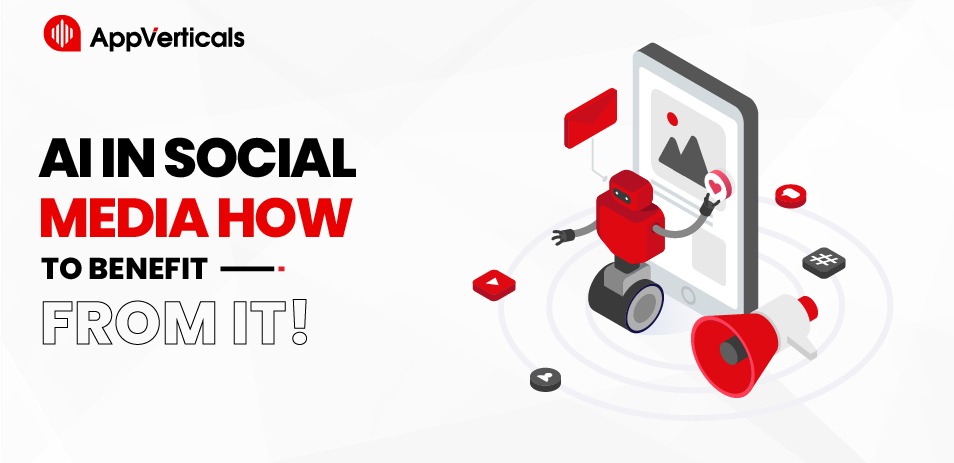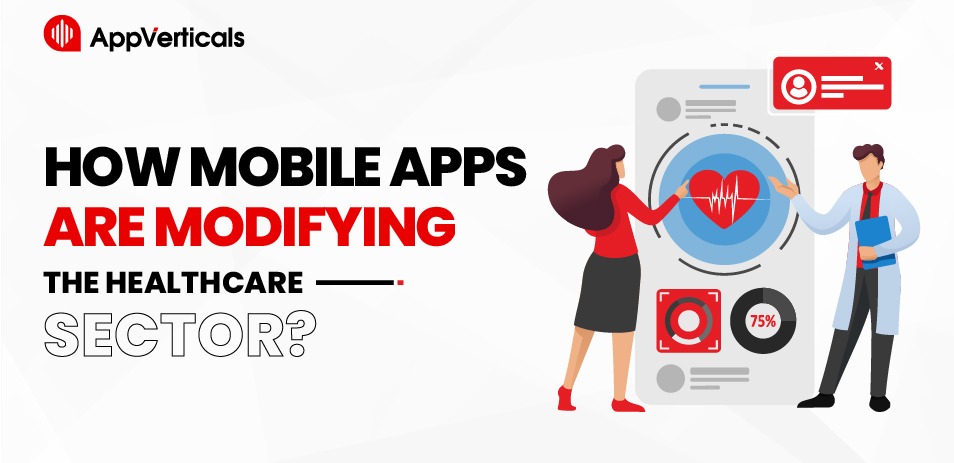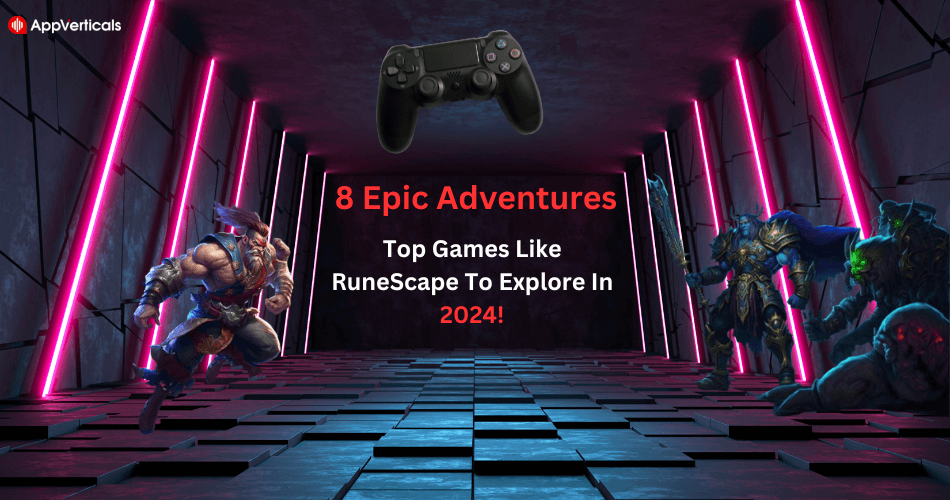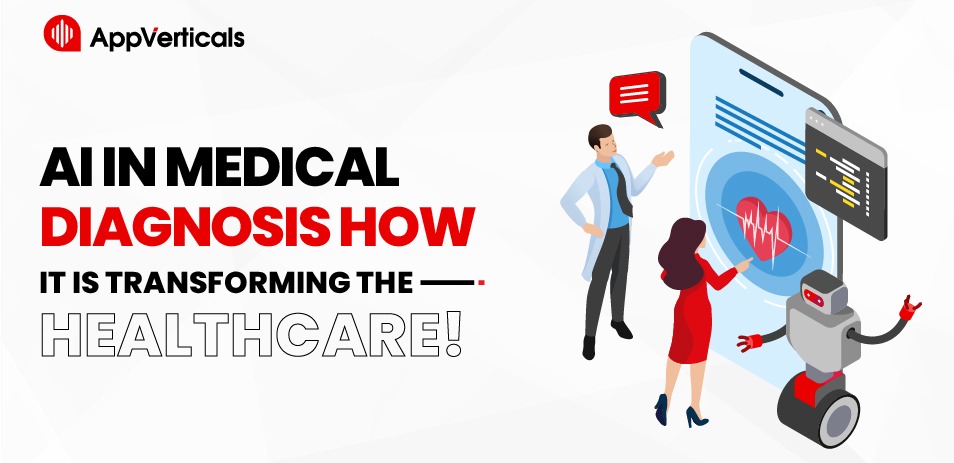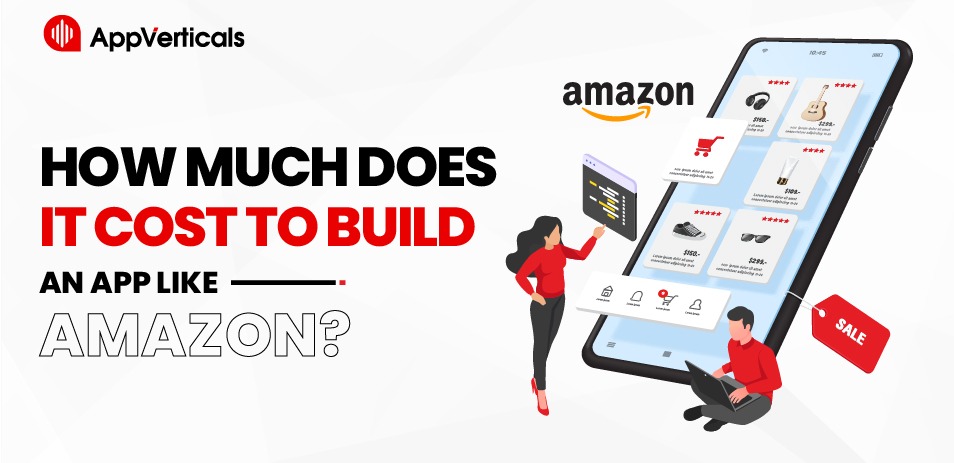Artificial Intelligence (AI) has quickly become a game-changer in social media. From improving how we connect with friends to boosting marketing efforts, AI in social media is taking center stage.
Social media platforms now have billions of users worldwide, making it essential to use AI to keep up. This technology doesn’t just handle repetitive tasks—it powers smart algorithms that personalize your feed, improve engagement, and help businesses make better decisions.
In this guide, we’ll explore how AI is used in social media, the benefits it offers, and the challenges it presents. Understanding the role of AI and social media can help you use them to your advantage.
In addition, if you’re in the tech world, you’ll see why AI is vital for social media app development and how it drives growth and engagement.
Let’s get started!
What is AI on Social Media?
AI on social media uses smart technology to make platforms more useful and fun. It helps recommend posts, show ads, and remove harmful content. AI learns from what you like and do online, making your feed more personal and interesting.
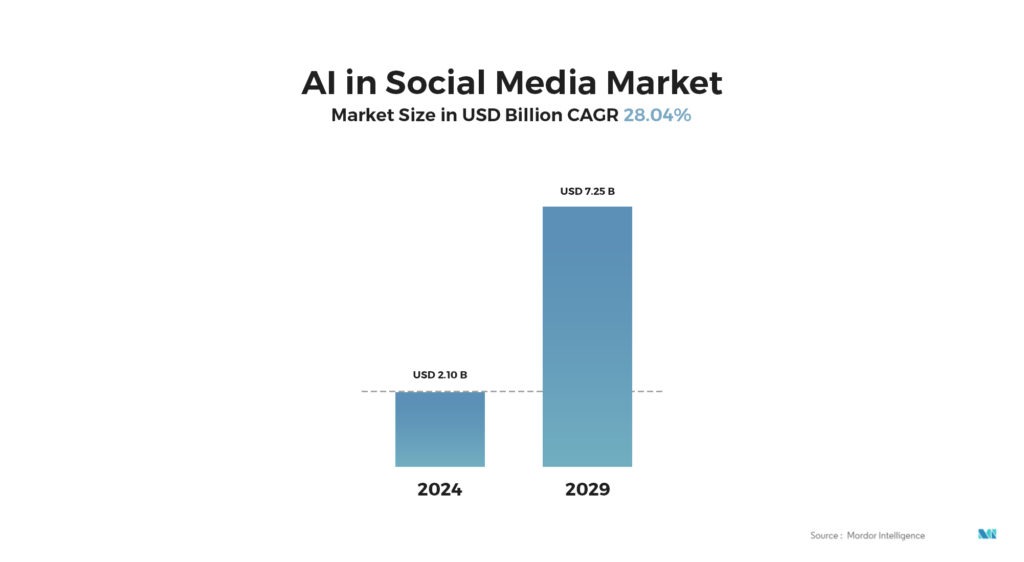
The AI in Social Media Market is expected to grow from USD 2.10 billion in 2024 to USD 7.25 billion by 2029.
For businesses, AI helps target the right audience with ads and improve how they interact with users. It also keeps platforms safe by quickly spotting and blocking harmful content.
In a nutshell, AI makes social media work better for users and businesses by automating tasks and offering helpful insights.
How to Use AI in Social Media?
AI is used in many ways to make social media more engaging, efficient, and personalized. Here’s a closer look at how AI in social media increasing more engagement:
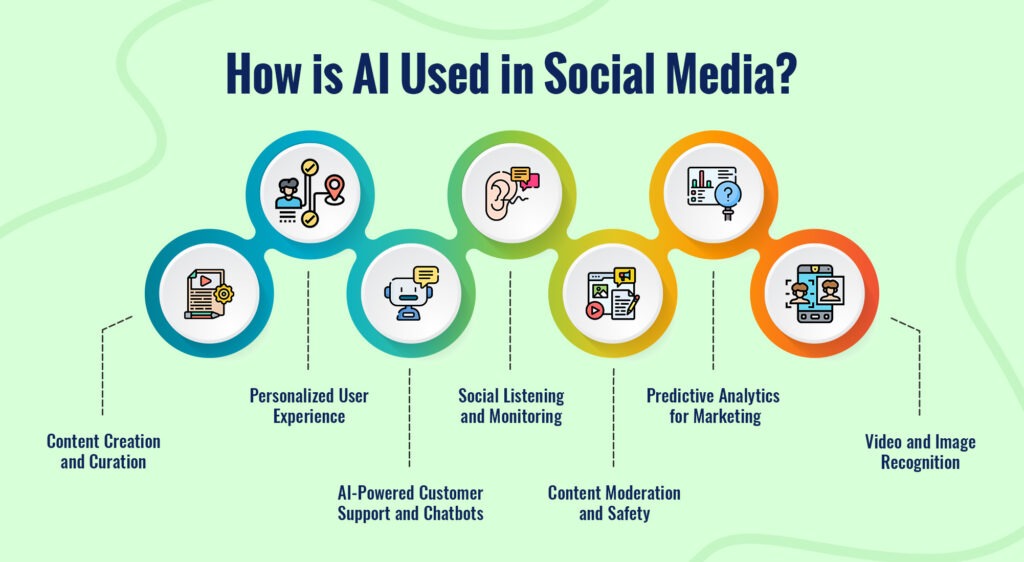
1. Creating and Recommending Content
AI analyzes your likes, comments, and browsing history to show content you’re most likely to enjoy. Platforms like Facebook, Instagram, and TikTok use AI to suggest posts, videos, and ads tailored to your interests. This keeps you engaged and coming back for more.
2. Offering Personalized Experiences
AI tracks user behavior to deliver a custom experience. It suggests friends connect with, recommends content you’ll love, and shows targeted ads. Businesses also use AI to personalize messages and marketing campaigns to boost customer satisfaction.
3. Chatbots for Customer Support
AI-powered chatbots handle customer questions quickly and efficiently. They can answer basic queries, help with common issues, and pass complicated problems to human agents. This makes customer service faster and more cost-effective while improving user trust.
4. Social Listening and Trend Tracking
AI tools monitor hashtags, comments, and mentions to help brands understand public opinion. This practice, known as social listening, lets businesses track trends and respond to customer feedback in real time. For example, AI can scan thousands of posts to find out what people think about a product launch.
5. Keeping Platforms Safe
AI helps identify and remove harmful content, like hate speech, fake news, and graphic images. Platforms use machine learning to detect this content faster and more accurately than humans. This makes use of AI in social media safer for everyone.
6. Predicting Trends for Marketing
AI tools analyze user behavior to predict trends and plan better marketing strategies. This helps businesses create more effective social media campaigns, increasing engagement and boosting sales.
7. Recognizing Images and Videos
AI uses computer vision to identify objects, people, and emotions in photos and videos. This technology helps platforms recommend similar content, tag users automatically, and organize visual media more effectively.
How Does AI Affect Social Media Marketing?
One of AI’s most useful features in social media marketing is smarter ad targeting. AI learns from how users interact with ads and refines when, where, and how ads are shown. This ensures ads reach the right people at the right time. But it doesn’t stop there!
AI also gives marketers powerful insights. With predictive tools, businesses can see upcoming trends and adjust their campaigns to stay ahead.
AI also makes marketing more personal. Businesses can send messages or run campaigns based on what users are doing right now. For example, AI-powered chatbots can recommend products, offer discounts, or answer customer questions instantly. This builds trust and improves customer experiences.
Content optimization is another area where AI stands out. It helps test different versions of ads or posts to see which works best. This means businesses can focus on content that gets results. AI also predicts what type of content users will enjoy based on their past behavior, helping brands stay relevant and engaging.
Routine tasks like scheduling posts or managing campaigns take time, but AI automates them. This ensures that content goes out on time and lets marketers focus on strategy. AI also listens to what people are saying on social media by tracking mentions, hashtags, and trends. This helps brands understand customer feelings and respond quickly to their needs.
Overall, AI in social media marketing is really a game-changer.
Build the Next Social Media Sensation.
Leverage AI for Smart, Engaging Apps With AppVerticals.
Make A Custom AppBenefits of AI in Social Media for Businesses
With AI tools, businesses can improve their social media presence by being more accurate, efficient, and personal. Here’s how AI is helping social media management:
1. Increased Efficiency and Automation
AI can automate tasks like scheduling posts, answering common questions, and tracking how well posts are doing. By letting AI handle these tasks, social media managers have more time to focus on creating content and engaging with their audience.
2. Better Content Creation and Curation
AI looks at what users like and recommends content that fits their interests. This helps keep users engaged by showing them posts, videos, and articles they enjoy. AI can also help create content by suggesting captions, hashtags, and ideas to make posts more popular.
3. Better Customer Engagement
AI chatbots provide quick answers to customer questions and offer support 24/7. This improves response times and keeps customers happy. Businesses can interact with many customers at once and maintain quality in the conversations, which builds trust and loyalty.
4. Smarter Insights for Better Strategies
AI looks at data from social media to find trends and audience preferences. This helps businesses make smarter decisions about their campaigns. By using data, businesses can improve their strategies and make their messages more effective.
5. Predicting Trends for Proactive Campaigns
AI can predict how people will behave or what trends will emerge next. This helps businesses create campaigns that capitalize on new interests or trends.
For example, if AI notices that people are interested in a certain topic, businesses can create content about it early to reach a wider audience.
6. Social Listening and Brand Monitoring
AI tools can track what people are saying about a brand on social media. This helps businesses see how people feel about their products, services, or campaigns. It also helps businesses respond to customer feedback quickly and stay updated on the latest trends.
7. Better Content Moderation and Safety
AI helps keep social media platforms safe by spotting harmful content like hate speech or fake news. It can remove bad content faster than humans, which helps create a safer and more positive space for users.
8. Personalized User Experience
AI makes social media experiences more personal by showing users content and ads that match their interests. This makes users feel like the platform is tailored to them, which can lead to more engagement and loyalty to the brand.
As AI continues to improve, businesses will have even more ways to grow and connect with customers online.
AI in Social Media Costs
| AI Feature/Service | Estimated Cost Range | Details |
| AI-powered Content Recommendation | $30,000 – $100,000 | Personalizing content based on user preferences and behavior. |
| AI Chatbots for Customer Support | $10,000 – $50,000 | Automated customer service and engagement using AI-powered chatbots. |
| Sentiment Analysis | $20,000 – $70,000 | Analyzing user sentiment in posts, comments, and messages. |
| AI-powered Ad Targeting | $25,000 – $80,000 | Personalized ad targeting using machine learning algorithms. |
| AI Content Moderation | $40,000 – $150,000 | Detecting and filtering harmful, inappropriate, or spam content. |
| Predictive Analytics | $30,000 – $120,000 | Using AI to forecast user behavior, trends, and engagement. |
| AI Integration for User Segmentation | $25,000 – $75,000 | Dividing users into segments for tailored content, ads, and messaging. |
Ready To Take Your Social Media Presence To The Next Level?
Our Expert Team Can Create A Custom AI-Powered Social Media App.
Let’s Build Something Amazing!AI and Social Media: Real-World Examples!
Here are some real-world examples of how AI is being used on popular social media platforms:
1. Facebook: AI for Content and Ads

Facebook uses AI to personalize user feeds and improve ad targeting. It looks at data like user interactions, interests, and demographics to decide which posts show up in a person’s feed.
This ensures the content is relevant and engaging. AI also helps businesses target ads to the right people, making ad campaigns more effective.
2. Instagram: AI for Image Recognition and Filters
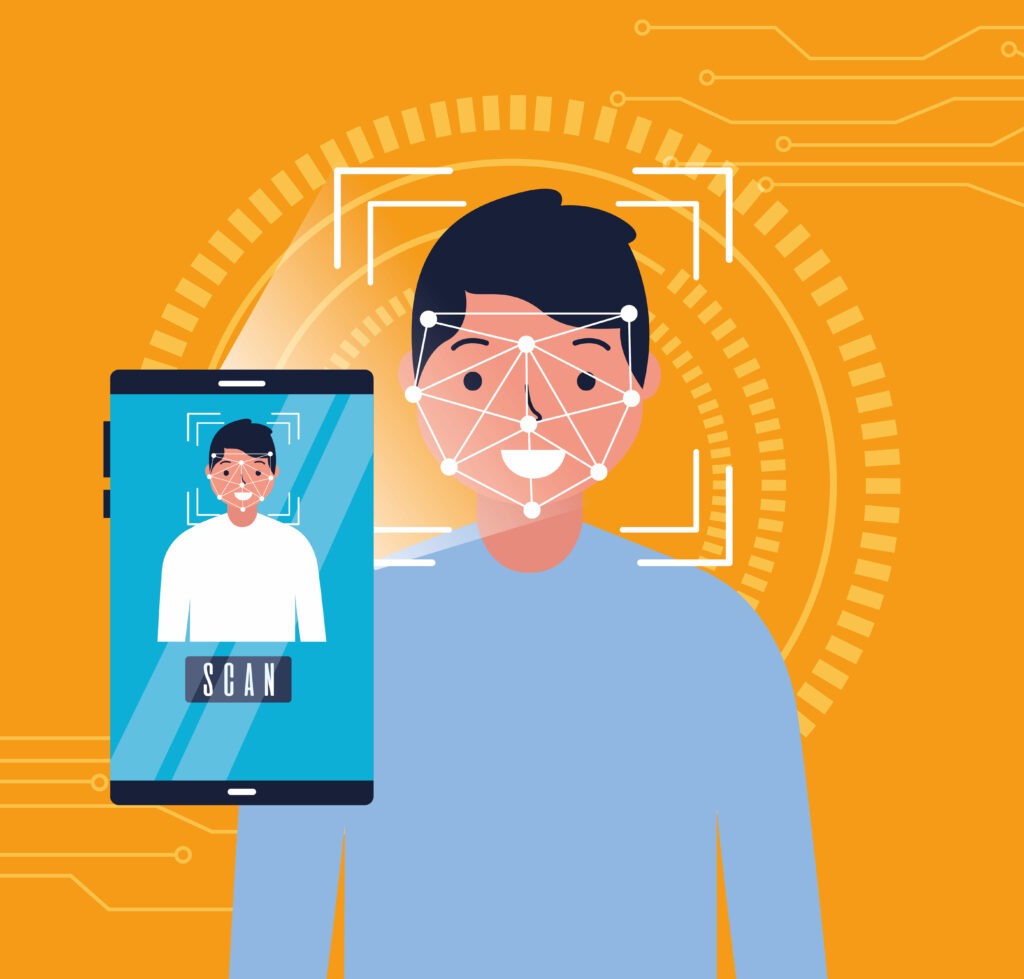
Instagram uses AI to enhance photos and videos. AI can automatically recognize objects in pictures and tag them. The platform also offers augmented reality (AR) filters that let users change their appearance or surroundings.
AI-powered filters are making the platform more interactive and catchy.
Also Read: How to Build An App Like Instagram?
3. X (Formerly Twitter): AI for Trends and Moderation

Twitter uses AI to analyze the millions of tweets posted every day. The platform’s AI can quickly find trending topics and suggest relevant content for users.
AI also helps with content moderation, identifying harmful posts, hate speech, and misinformation, which keeps the platform safer for users.
4. LinkedIn: AI for Job Matching and Content Suggestions
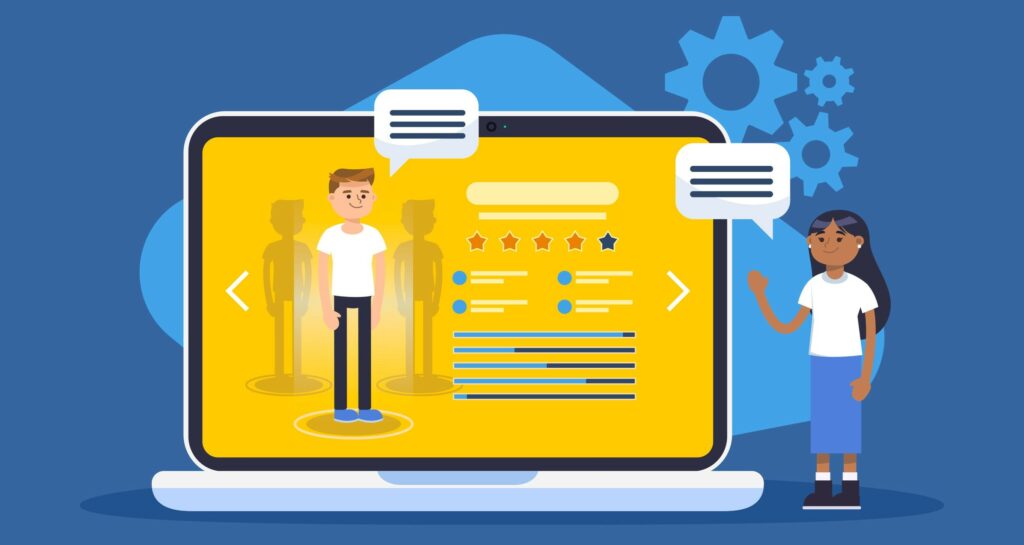
LinkedIn uses AI to match job seekers with relevant job openings by analyzing profiles, job posts, and user searches. This makes it easier for people to find the right opportunities.
AI also suggests posts, articles, and discussions based on users’ professional interests, creating a more engaging experience.
5. Snapchat: AI for Interactive Filters

Snapchat is known for its fun AI-powered filters and lenses that let users change their faces, surroundings, or even create virtual objects. AI analyzes facial features in real-time, adjusting filters to suit different faces and expressions.
These filters drive high levels of engagement, especially among younger users.
6. YouTube: AI for Recommendations and Moderation

YouTube uses AI to recommend videos based on what users have watched before. The platform looks at video content, metadata, and user behavior to suggest videos that people will enjoy.
AI also helps monitor uploaded content, checking for copyright issues and harmful material, making the platform safer.
7. TikTok: AI for Personalized Feeds
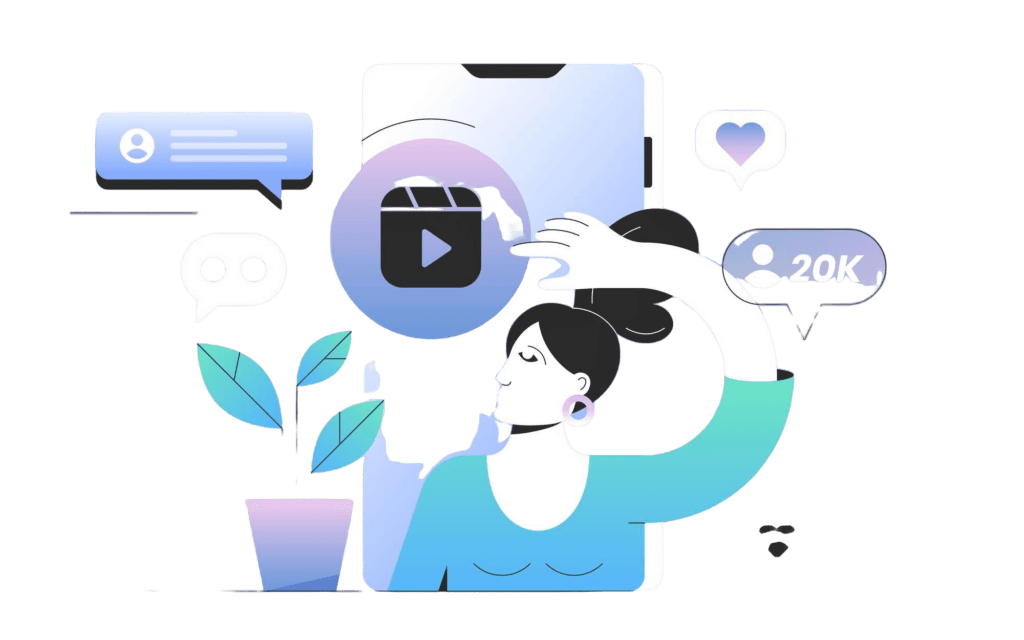
TikTok’s AI algorithm analyzes how users interact with videos, such as likes, shares, and watch time, to create personalized feeds. This means users see videos that match their interests, which keeps them engaged.
TikTok’s “For You” page is a great example of how AI helps users discover content that they’ll enjoy.
Also Read: How much does it cost to make an app like TikTok?
8. Pinterest: AI for Visual Search and Recommendations
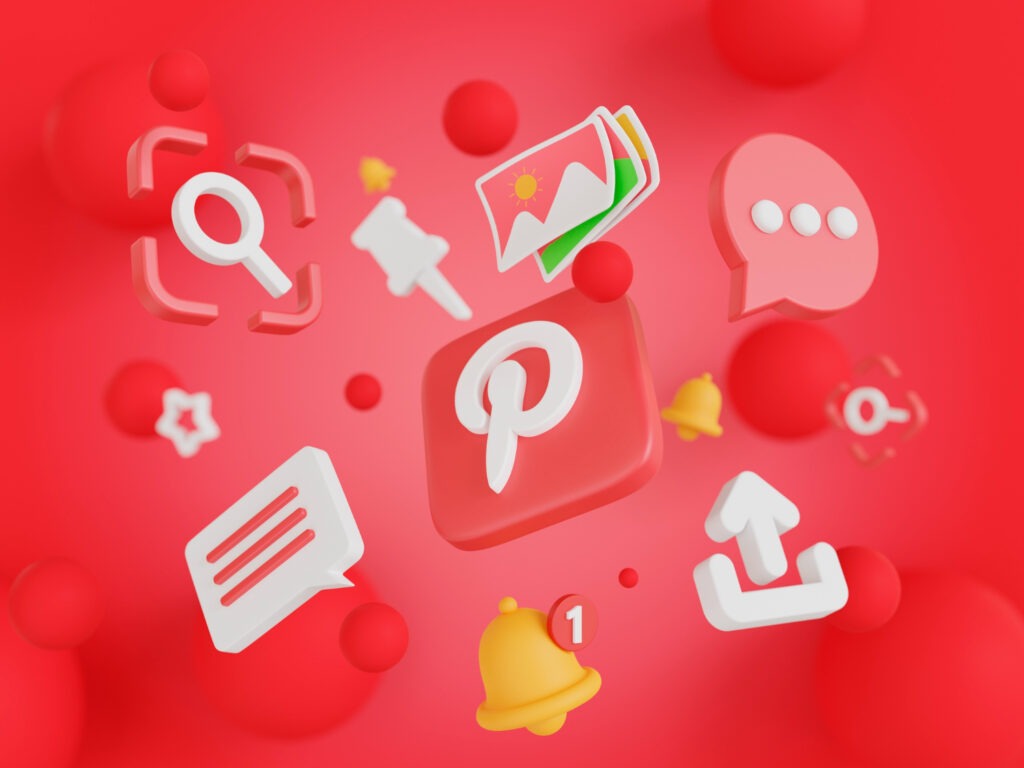
Pinterest uses AI to help users find what they’re looking for by uploading a photo. AI analyzes the image and suggests similar items, making it easier to discover new ideas.
Pinterest also personalizes the content shown to users based on their interests, making sure they see pins that match their preferences.
These examples show how AI is transforming social media by making it more engaging, personalized, and efficient.
Challenges and Ethical Considerations of AI on Social Media
AI is changing the way we use social media, but it also brings challenges and important ethical issues. These problems affect both user experience and raise concerns about privacy, bias, and the spread of false information.
1. Privacy Concerns
Social media platforms use AI to personalize content and ads, which means they collect a lot of personal data from users. Businesses need to find a balance between personalizing content and protecting privacy. Here are some ways they can do this:
- Businesses should clearly explain how they collect, store, and use user data.
- Users should be able to control their privacy settings, such as choosing what data they share.
- Businesses must put strong security measures in place to protect user data from unauthorized access.
2. Biases in AI Algorithms
AI systems learn from data, and the quality of this data affects how well AI works. This can lead to some groups being treated unfairly or excluded from certain content. Social media app developers and businesses can help fix this problem by:
- Using diverse data sets.
- Regular audits and testing.
- Transparency and accountability.
3. Misinformation and Fake News
AI algorithms often prioritize content that gets the most engagement, but this can sometimes mean that fake news or misleading information spreads more easily. Businesses and app developers can help fight misinformation by:
- Content moderation.
- Transparency in algorithms.
- Collaboration with fact-checkers.
4. Ethical Use of AI on Social Media
AI on social media raises ethical issues beyond privacy and bias. App developers must consider how their AI systems impact society and ensure that the technology is used in ways that are fair and respect human rights. Here are these best practices:
- AI should be designed according to ethical guidelines, focusing on user well-being and minimizing harm.
- AI systems should be checked regularly to make sure they’re working as intended, and any problems should be addressed quickly.
- Involving users in the development process and considering their feedback will help create more responsible AI.
Addressing these issues will help ensure that AI’s benefits are used fairly and helpfully for everyone.
How to Get Started with AI in Social Media
These practical steps will make AI integration smoother and more effective, whether you want to boost customer engagement, simplify content creation, or improve ad targeting.
1. Practical Steps for Businesses, Marketers, and Developers
The first step to use AI in social media is understanding how it can help you reach your business goals. Here are some important steps to get started:
- Clearly define what you want to achieve with AI in social media. Do you want to automate content creation, improve ad targeting, or enhance customer service with chatbots?
- Instead of trying to use AI in all areas at once, begin with one or two key areas, like improving ad targeting or automating customer service. This lets you test AI’s effectiveness on a smaller scale before expanding.
- Learn about the different types of AI technologies, such as machine learning, natural language processing, and computer vision. Understanding these will help you decide what tools to use.
- Successful AI implementation requires collaboration between marketing, IT, data science, and customer service teams. Involving key members early will ensure everyone is aligned on goals and strategies.
2. Choosing the Right AI Tools and Software
With so many tools available, it’s important to pick those that are designed for use of AI in social media and will deliver results. Here are key things to consider when choosing AI tools:
- Look for tools that can automate tasks like scheduling posts, responding to customer questions, or curating content.
- Choose tools that offer real-time data so you can quickly adjust your strategies.
- Some AI tools help with content creation, such as writing copy, generating images, or editing videos.
- AI-powered chatbots are becoming more common on social media. They can help businesses respond quickly to customer inquiries, handle routine questions, and provide 24/7 customer support.
- Many social media platforms offer AI tools that can improve ad targeting, adjust ad budgets based on performance, and enhance ad content.
3. Integrating AI into Existing Social Media Strategies
Once you’ve selected the right AI tools, the next step is to integrate them into your current social media strategies. Here are some ways to integrate AI smoothly:
- If you already have a content calendar, AI can suggest the best times to post based on audience engagement.
- AI can help you divide your audience into smaller, more specific groups.
- Use AI-powered chatbots on social media platforms like Facebook Messenger, WhatsApp, or Instagram. Chatbots can handle common questions while passing more complex issues to human agents.
- Check if AI is meeting your business goals and driving the results you want. Use this data to adjust your strategy and improve your outcomes.
By following these steps, businesses and app developers can successfully use AI in social media strategies, boosting efficiency and achieving better engagement, conversions, and customer satisfaction.
Wrapping it Up!
AI in social media can bring big benefits like better customer engagement, smarter ad targeting, and easier content creation. But it also comes with challenges, such as picking the right tools and making sure they work well with your current strategy. Start small, focus on key goals, and keep improving to make the most of AI.
Need Further Assistance? Contact AppVerticals!
FAQs – AI in Social Media
How is AI used in social media?
AI in social media improves users’ experiences and helps businesses. It looks at what you like, share, and comment on and suggests posts and ads that match your interests. AI also helps filter out harmful or fake content and ensures social media is safe.
Is AI in Social Media Ethical?
AI in social media can be ethical if used responsibly. However, concerns like privacy, data misuse, and bias in algorithms raise ethical issues. To be ethical, AI systems should be transparent, respect user privacy, and avoid spreading false information. Businesses must also ensure AI doesn’t harm vulnerable groups or promote harmful content.
What is the AI App Everyone is Using on Social Media?
One popular AI app used on social media is ChatGPT. It powers chatbots, helps with content creation, and improves customer engagement on platforms like Facebook, Instagram, and Twitter.
What is the Future of AI in Social Media?
The future of AI in social media looks promising, with more advanced AI tools coming to improve user experience. It will also focus on detecting harmful content and improving platform safety, making social media more interactive and secure.

